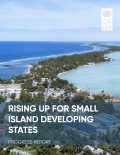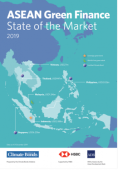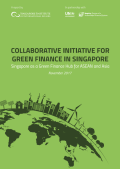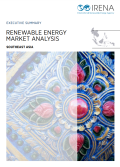
Small Island Developing States (SIDS) are generally small in population and land area, with fragile ecologies, and face diverse and distinct development trajectories. Many SIDS face common structural and fiscal development challenges including lack of economic diversification, inadequate social protections and inclusion, heavy debt and overdependency on imported fossil fuels. Further, their small size and geographies make SIDS extremely vulnerable to the impacts of climate change.
UNDP’s integrated SIDS offer Rising Up for SIDS articulates a clear strategy to respond to their most pressing needs as well as bring forth innovative solutions to the complex developmental challenges they face for a better future for people and planet. It acts as a vehicle for recovery committing to enhancing current support in areas of climate action, blue economy and digital transformation, with innovative development finance as an enabling cross-cutting area



Eco-innovation globally emerged as an effort to implement sustainable development. States and firms established and implemented policies and strategies for eco-innovation as one route to achieving sustainable development. Eco-innovation has been facilitated in developed countries, specifically OECD members and European countries, through action plans. Recently, eco-innovation policies have emerged in developing countries. Thus, this study analyzes eco-innovation policies in Asian countries. Policies related to eco-innovation in 17 Asian countries were investigated using policy instrument categories. National policies for eco-innovation were interpreted and compared with development stage classifications. The results indicate that there are similar and different policy approaches to eco-innovation in Asian countries. Given the balance between a technology push (supply side) and a market pull (demand side) in policy instruments for eco-innovation, 17 countries were identified by four categories: leaders, followers, loungers, and laggards. The results provide insight for designing national strategies for eco-innovation in Asia’s developing countries.
